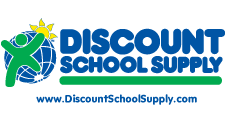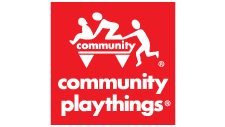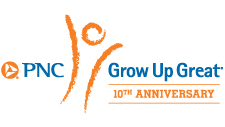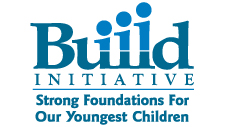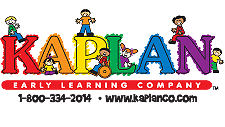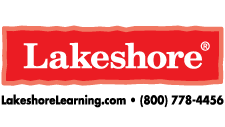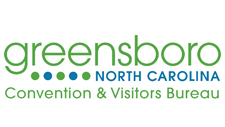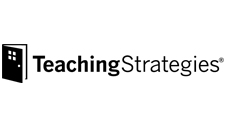 Workshop Sessions
Workshop Sessions
Tracks:
Smart Start (SS#)
Early Care and Education (100's)
Early Childhood System Development (200's)
Early Childhood Health (300's)
Family Support and Leadership (400's)
Public Engagement and Advocacy (500's)
BUILD (600's)
SS1 - Smart Start and Evidence-Based/Evidence-Informed Activities (EB/EI)
The NC Legislature required Smart Start to fund only evidence-based and evidence-informed activities starting in 2011. NCPC and local partnerships are working together through a Quality Assurance process to further strengthen services using the NCPC Board approved definition of EB/EI. This session covers observations from the field on EB/EI documentation including research evidence, logic models, and programmatic guidelines.
Presenters: Kimberly McCombs-Thornton; Ann Spence; Cynthia Turner; Angelica Oberleithner; Lee Henderson; Nia Trammel
Workshop #SS1 Handout
SS2 Start, Sustain, Succeed: Creating Strategic Plans that Matter
If strategic planning has you stuck, if you're not sure how to start (or why); if you're tired of developing plans that end up in binder on a shelf - then join us for an interactive session that will get you unstuck and ready to create a meaningful plan that's built to last as it moves your Partnership forward.
Presenters:Betsy Polk Joseph; Denauvo Robinson; Amy Barry; Carolyn Paylor
Workshop #SS2 Handout 1
Workshop #SS2 Handout 2
Workshop #SS2 Handout 2
SS3 Smart Start Outcomes Briefing
Smart Start received funding through RTT-ELC to develop common outcomes for the Smart Start system. The Data Advisory Group, with representatives across 12 local partnerships, will provide an overview of their work on developing outcomes for Smart Start core services. Participants will discuss plans to pilot and/or phase in new data collection and reporting as well as partnership capacity- building opportunities.
Presenters: Smart Start Data Advisory Group
Workshop #SS3 Handout
SS4 Smart Start Program Match
This session is specific to the legislative requirements in North Carolina for Smart Start partnerships. Participants will receive the most current information available regarding the Smart Start Program Match requirement. This will include the current policy that applies to all Smart Start local partnerships, an overview of contributions allowability guidelines, appropriate documentation and reporting into the Candl online system.
Presenters: Christine Bauer
SS5 Smart Start Fiscal Update/Year End Close for Smart Start Partnerships
The Smart Start Fiscal Update/Year-End Close will be a combined session with the fiscal update being presented first. The Smart Start Fiscal Update session will update Smart Start local partnership staff on Smart Start fiscal matters. Discussion will include issues such as audit results, common monitoring issues and any planned accounting or contracting changes. The year-end session focuses on the local Smart Start partnerships year-end close process. Reporting requirements for the 2013-2014 year-end will be discussed.
Presenters: Christine Bauer; Erica Holton
100 - Seeing Quality in Action: A Mentoring Initiative
In Columbia, South Carolina, "Seeing is believing" is applied to child care technical assistance in a Mentoring Initiative by Richland County First Steps. This workshop will look at the mentor model that brought child care teachers to high-quality classrooms to "see" best practices in action that related to specific ITERS/ECERS items.
Presenters: Marcia Bacon, Richland County First Steps; Catherine Nolan; Porsche Knight
103 - Early Learning Communities-Promising Practice for Children and their Caregivers
What does Atlanta, GA, Seattle, WA and Grand Rapids, MI have in common? They use strength-based approaches to expand access to quality learning for children who are not in formal care settings and work to develop the skills of caregivers. Hear about multiple strategies (for school and community settings) that are improving school readiness across the country.
Presenters: Judy Freeman, First Steps; Roberta Malavenda; Paula Steinke
Workshop #103 Handout
104 - Social Justice in Early Childhood: Effective Practices for Change
This workshop will provide recommendations and strategies for social justice and social change perspectives in developmentally and culturally appropriate preschool and kindergarten classrooms.
Presenters: Paula Grubbs, Winston-Salem State University; Eva Phillips
105 - More than Assessments: Supporting Developmental Screening in ECE Settings
In high quality early childhood settings, caregivers can play an important role in connecting families to health care coverage, providing information about available health services, conducting screening, providing preventive health services, and communicating with parents about the health and developmental needs of their children. THis workshop will discuss state policy strategies to integrate and finance comprehensive services into programs.
Presenters: Christine Johnson-Staub, Center for Law and Social Policy; Stephanie Schmit
106 - Planning for and Implementing MyTeachingPartner coaching in NC
This workshop will look at the experiences of two agencies in NOrth Carolina Counies in planning, implementing and supporting MyTeachingPartner (MTP) Coaching, a research-based model for improving teacher-child interactions. Each coach will discuss the unique county demographics and types of preschool education, as well as the benefits, successes and challenges of coaching to improve child outcomes.
Presenters: Catherine Lieberman, Helping Hand Developmental Center; Kathy Carmical; Sedra Spano
107 - Creating a Continuous Quality Improvement (CQI) Culture within Programs
This workshop for program managers will explore how to create a culture of continuous quality improvement, what we can learn from other disciplines about CQI, and the elements of a strong CQI plan. Participants will have the opportunity to share experiences and brainstorm with colleagues challenges and strategies around program improvement.
Presenter: Debi Mathias, BUILD Initiative
Workshop #107 Handout
108 - Navigating the Maze: Simplifying & Aligning Child Care with Other Work Supports
While conversations on program alignment most commonly focus on aligning core programs like Head Start, child care and prekindergarten, a parallel alignment effort is occurring across work support programs including child care, SNAP and Medicaid. Learn how states are redesigning service delivery to allow families to access and retain benefits for which they are eligible, with minimal burden.
Presenters: Hannah Matthews, Center for Law and Social Policy; Christine Johnson-Staub
109 - Early Care and Education Workforce: Data and Supports
How has the early care and education workforce in North Carolina changed over the past decade? What improvements have we seen? Where are improvements needed? Come and learn about the workforce as well as important strategies, the T.E.A.C.H Early Childhood Project and Child Care WAGE$ Project, that can help achieve better education, retention and compensation outcomes for all states.
Presenters: Allison Miller, Child Care Services Association; Edith Locke; Mary Martin
110 - Program Quality: Administration Item Development in a TQRIS Measurement System
The goal of the Measurement Development Project is to develop a new measurement system to evaluate early childhood program quality within a Tiered Quality Rating and Improvement System (TQRIS). This workshop will highlight the program administration component of the new system both from a conceptualization perspective and an assessment perspective.
Presenters: Sharon Mims, The University of North Carolina at Greensboro; Karen La Paro; Linda Hestenes; Deborah Cassidy; Yudan Wang
111 - Program Quality and Staff Support in Preschool and Infant/Toddler Classrooms
This workshop will explore the relationship of classroom quality scores and varying levels of staff support measured in environment rating scales. Using data from over 5000 assessments conducted by the North Carolina Rated License Assessment Project, a comparison of overall quality scores with ratings on staff and parent subscale scores will be shared.
Presenters: Rhonda Sawyer, North Carolina Rated License Assessment Project; Megan Porter; Marilyn Thompson
112 - Better for Babies: Improving State Early Care and Education Policies
This workshop will share strategies for improving the early care and education experiences of infants and toddlers through state child care policies and investments. Presenters will discuss the national picture of state infant-toddler child care policies and highlight promising state policies that benefit infants and toddlers.
Presenters: Stephanie Schmit, Center for Law and Social Policy; Hannah Matthews
113 - Making Kindergarten Transition both High Quality and Engaging
This engaging and interactive workshop will discuss the aspects of early childhood that predict successful outcomes as children transition to kindergarten. The workshop will blend strategies that tie parent engagement, child "readiness", welcoming schools, and community support into effective transition practices. The session includes a critical review of what makes transition activities good, better and BEST.
Presenter: Ken Smythe-Leistico, University of Pittsburgh Office of Child Development
114 - Childcare Consultation for Challenging Behavior: CSEFEL Coaching Model
The CSEFEL Teaching Pyramid can concurrently determine the needs of a classroom and a specific child with challenging behavior. This process results with stable childcare for the child, the classroom running more smoothly, and teachers possessing strategies for all teaching. This workshop will discuss what goes into Action Plan development, coaching (utilizing observation, modeling, and feedback sessions), resources, tracking systems and evaluation for this model.
Presenter: Aviva Starr, Exchange Family Center
115 - Developing Workforce Knowledge & Competencies for Educators, PD Providers & IHE
This workshop will explore tools and processes used to actively draw upon the expertise of and engage diverse stakeholders in competency development, and examine ways to integrate the work into the five core elements of a professional development system. Particpants will review a conceptual approach for developing workforce knowledge and competencies, and connect with colleagues and develop action plans.
Presenters: Linda Warren, Early Childhood Associates, Inc.; Benita Danzing
200 - Effectively Partnering with School Districts
Come find out how YOU can work with your local school district in meaningful and impactful ways. Learn from expert experience on strategies that will work to increase school district leadership commitment in early childhood-- and then translate that commitment into policies that improve the alignment between early childhood and K-12 systems!
Presenter: Samantha Aigner-Treworgy, The Ounce of Prevention Fund
201 - Quality Rating and Improvement Systems (QRIS): Online Tools and Resources
As a requirement for the Race to the Top Early Learning Challenge grant, QRIS has become a universal state strategy. In this workshop, a menu of online tools from the Office of Child Care for the design and revision of a QRIS will be demonstrated including the Benchmarks for Quality Improvement indicators; Cost Estimation Model; Provider Cost of Quality Calculator; QRIS Resource Guide.
Presenter: Peggy Ball, National Center on Child Care Quality Improvement
202 - Smart Start's Online Learning Community
Looking for a way to take meaningful collaboration to the next level? Interested in cultivating and maintaining productive relationships with partners? A primer on the Smart Start Online Learning Community, this session provides a conceptual framework and hands-on practice with this exciting online leadership tool that support collaboration across geographies and organizations to share practice and advance our work.
Presenters: Pedro Bermudez, University of Florida Lastinger Center for Learning; Sarah Smith
203 - Developing Leaders of Systems Change
Leadership is not only about what you know but who you are. Being a systems change leader requires specific capacities and competencies built from both external knowledge as well as awareness of factors internal to the individual. Utilizing research based and mindfulness practices, the presenters will help participants increase their awareness of systems change leadership at a very personal level.
Presenters: Joan Blough, Blough Consulting; Alissa Parks
204 - A Local Readiness Initiative Comes To Life
How do you grow your program from $1 million in funding to $4 million of sustained in funding in three years? Join this workshop to learn about a local success story in Florence, SC. Transparent community engagement, a local school board and a local school foundation board used collaboration and committment to build a successful school readiness program.
Presenter: Floyd Creech, Florence School District One
205 - Being an Early Childhood Leader in Today's Early Childhood Climate
Efforts to embed professional development to improve the quality of early care is at the core of the new Child Development Associate Credentialing Program. Join this workshop as we explore issues that impact early childhood leaders in their efforts to advance the alignment of early learning standards, professional development and the entry point of the CDA for early care professionals.
Presenter: Myra Crouch, Council for Professional Recognition
206 - Building Community: Strategic Planning using Appreciative Inquiry
This workshop will introduce an approach to Strategic Planning, integrating Appreciative Inquiry (AI) to achieve success-based outcomes. The presenters will demonstrate the use of AI directed Community Mapping to engage stakeholders in designing and owning a specific strategic plan. AI is based on the belief that communities are made and imagined by those who live and work in them.
Presenters: Janice Edgerton, Region A Partnership for Children; Kristi Cook; Jody Miller; Linda Neyman
208 - Great Expectations Lead to New Community Initiatives
Join this interactive session featuring discussions of how Tucson, AZ is: building a new EC professional development system; using multiple strategies for documenting evidence of changes in teachers, children, and Tucson; and linking early childhood professional development to community-wide birth- third grade literacy initiatives.
Presenters: Naomi Karp, United Way of Tucson and Southern AZ; Lavonne Douville; Amber Jones
Workshop #208 Handout #1
Workshop #208 Handout #2
209 - Second Generation QRIS - State Trends and Directions
What ideas, strategies and next steps will you want to incorporate into your systems building work moving forward? Come to this interactive session prepared to discuss innovation and next generation system building. What do national trends mean to the quality improvement and systems building work that you are currently involved in?
Presenter: Debi Mathias, BUILD Initiative
Workshop #209 Handout
210 - NC's Early Childhood Initiatives and Special Education Placement in Third Grade
This workshop addresses an under-researched and important question: what are the community-wide effects of North Carolina's state-supported early education initiatives on special education placements in third grade? We will examine results from an ongoing research study, explore implications for cost savings, and discuss the translation of research to comprehensive policy on investment in early education programs.
Presenters: Kenneth Dodge, Duke University; Helen Ladd; Clara Muschkin
211 - Mapping Early Childhood Systems: Case Studies from MI, VA and DC
Learn about the art and science of mapping and building early childhood system. Case studies from two counties in Michigan, two cities in Virginia and the District of Columbia reveal the methods, benefits and challenges associated with mapping early childhood systems. This session can help you improve community collaboration to address needs, raise funds and measure and improve outcomes.
Presenter: Colin Newlin, Braintree Solution Consulting, Inc.
212 - No More Crickets: Effectively Using Webinars to Support Learning
Webinars are a widely used technology within early childhood training and technical assistance programs. However, they are rarely used effectively to engage participants and increase learning. This workshop will increase participant's knowledge regarding the effective use of webinar technology, including how decide whether a webinar is the best methodology, and specific tips for preparing and conducting successful webinars.
Presenter: Alissa Parks, AKP Consulting, LLC
213 - Community Scholarships - Pathway to High-Quality
How did 29 communities across Michigan established local early childhood funds, designed to increase access to high-quality early learning? Learn how in this workshop that will discuss strategies for engaging partners, identifying high-quality early learning, process and protocols for scholarships, outreach to families, and sustainability. Participants will increase awareness of community capacity building, and build knowledge about strategies to establish a local fund.
Presenters: Karen Roback, Early Childhood Investment Corporation; Alicia Williams
214 - Supporting Higher Education Success for Early Childhood's Adult Working Students
This workshop will discuss what it takes for our adult working student population to be successful in a higher education degree program. Economic, counseling and mentoring strategies that support first generation college students, adult students with families, and students with economic and academic challenges will be reviewed.
Presenters: Sue Russell, T.E.A.C.H. Early Childhood National Center; Sharon Sullivan
215 - How an Early Learning Collaborative is Enhancing its Data Use
This workshop will take participants through a data capacity building initiative in a regional early learning coalition in North Central Washington state, using the PPV/Child Trends document titled "Using Data in Multi-Agency Collaborations". The project is a partnership with the collaborative and an evaluation consulting firm specializing in systems level data capacity building.
Presenters: Josie Rutherford, North Central Early Learning Collaborative; Aimee White; Alan Walker
217 - Primeros Pasos: Latino Infants and Toddlers in Policy and Practice
One of every four children under age five in the US is Latino, and as federal and state governments seek to expand the scope and quality of their early childhood systems, understanding the strengths and challenges of this population is critical. This dynamic workshop explores the opportunities and challenges of building programs and policies that can best serve Latino children.
Presenters: Jacob Vigil, Latino Policy Forum; Maria Mayoral
218 - GEEARS Blueprint: Applications of ECE data mapping in Georgia
This workshop will provide a case study of successful statewide engagement of early childhood advocates, state agency representatives, and funders around the use of a dynamic map of ECE data and services. Presenters will interactively exhibit this web-based map which illustrates how each of Georgia's 159 counties is doing in terms of preparing children to succeed.
Presenter: Laura Wagner, Georgia Early Education Alliance for Ready Students
219 - Blending and braiding early childhood program funding streams
This workshop will engage participants is a Toolkit designed to provide access to specific policies and approaches that states are using to promote blending and braiding of early childhood funding streams in order to develop options for policy change that address identified barriers.
Presenter: Margie Wallen, Ounce of Prevention
220 - Early Childhood Social Impact Finance: Possibilities and Challenges
This workshop will explore the emerging field of social impact finance (pay for success contracting, social impact bonds, etc) and the applications for early childhood. Participants will become acquainted with the state of the field, the possibilities and limits for applying social impact finance to early childhood programs, and what must be done to prepare various stakeholders for EC transactions.
Presenters: Joe Waters, Institute for Child Success; Megan Golden
300 - Supporting and Reaching - That One Kid!
This workshop will lay the groundwork for the exploration of when healthy development is disrupted. Participants will review healthy child development, primary attachment and relationship foundations. An outline and model for building social competence offered within the child/parent/teacher triad will be highlighted and will focus on relationships lacking desired healthy patterns of development.
Presenters: Dianne Alexander, Smart Start of Mecklenburg County; Ariana Shahinfar; Elaine Liberato; Lee Henderson
301 - The Affordable Care Act and the Early Childhood Workforce
The Affordable Care Act is in the news daily. What does it mean for the individual child care worker? What does it mean for the owners of child care facilities? What does this mean for children? What exactly is the Marketplace? Join us for an informative session that will educate and perhaps bust some myths surrounding this national initiative.
Presenters: Jill Arnold, Child Care Services Association; Samirra Wise
302 - How to Reduce Stress, Survive and Thrive with Humor
Come to this interactive, entertaining session and learn fun stress reduction strategies you can use or teach to families and children. There'll be stories, audience participation, group activities and music as we explore the many benefits of humor. Participants will leave with lots of tips to help them increase laughter, enhance resilience, build self-esteem, and just plain have more fun!
Presenter: Emily Ballance, Emily Speaks
303 - Understanding and Working with Different Ages and Generations
Different age groups and generations have their own characteristics. Knowing what they are can help staff members understand and work more effectively with families, children and coworkers. Attendees will listen to some music of each generation while learning about the unique talents, struggles, motivators and defining events of Millennials, 34 and under; Gen-Xers, 34-54; Baby boomers, 54-71; and Traditionalists, 71-92.
Presenter: Emily Ballance, Emily Speaks;
304 - Be Active Kids Movement Guide
In this workshop, you will learn how to actively engage young children with confidence and competence for a healthier future of North Carolinians. Be Active Kids is a statewide initiative aiming to provide physical activity related support through tools such as our BCBSNC Be Active Kids Movement Guide. We believe that providing resources such as our movement guide to individuals caring for young children in North Carolina is essential to further promote active, healthy living. Our Be Active Kids curriculum is told through five colorful characters. Using these characters allows children to engage in more playful experiences. Along with our Movement Guide, Be Active Kids offers continual support through professional development training modules. Our face-to-face community trainings range from one to five hours and are intended to connect you with a deeper level of thinking surrounding movement concepts.
Presenters: Ryan Fahey, Be Active Kids; Richard Rairigh; Evie Houtz
305 - Agents of Healthy Change: Informed and Engaged ECE Programs in Action
Learning collaboratives are a new approach to training that involve participants in discovery learning, quality improvement, and collaboration with colleagues. This workshop highlights findings from collaboratives in Delaware and six other states, explores key elements; leverages ideas of participants. The session will be active and fun with games and activities to support children's health and learning.
Presenters: Mary Neal Jones, Nemours Health and Prevention Services; Julie Shuell
306 - Rural child care providers and children 2-5 years of age
This workshop will examine findings from a pilot study that found early childcare health programs could more immediately impact practices in child care settings related to physical activity rather than nutrition. The study also showed lower BMI post intervention in 80% of the facilities. Participants will learn more about the training and intervention used to change practices in nutrition and physical activity for participating licensed child care facilities.
Presenters: Catherine Keech, North Carolina Partnership for Children; Sherry Clark; Victor Aeby; Tracy Carpenter-Aeby
307 - The Nurse Family Partnership Program: From Planning to Funding to Implementation
Interested in learning about the Nurse-Family Partnership initiative and how to start this evidence-based program in your community? If so, this session is for you! You will learn the basic components of the NFP program and hear from an organization that successfully planned for, sought funding for and successfully implemented this program in its community.
Presenters: Gail Kiker, Kiker, Strickland & Associates; Heather Adams; Chris Bishop; Elaine Scarborough; Barbara Whitley
308 - Developmental Screening for All: How Online Screening Increases Access
The State of Alaska will present its experience implementing the Ages and Stages Questionnaires (3rd edition and social emotional) online as a coordinated statewide system to achieve universal developmental screening of children birth to five. This innovative Child Find initiative is built on partnering with medical providers, including public and private health centers, and early care and learning agencies.
Presenters: Erin Kinavey, University of Alaska, Anchorage; Carol Prentice; Jillian Lush
Workshop #308 Handout 1
Workshop #308 Handout 2
309 - Choosy Health & Nutrition Training
This workshop is packed with tools & activities that promote healthy nutrition and options for moderate to vigorous activity. We will move and explore with activities that support children's motor development and obesity prevention. Be ready to move as we do activities with music that can be infused throughout the day!
Presenter: Ron Mohl, Lakeshore Learning Materials
310 - Interpersonal Neurobiology: Reducing the Impact of Adverse Childhood Events
Home and school are a child's two biggest teachers. When children are traumatized by their family, schools have a responsibility to step up and help these children. Learn how interpersonal neurobiology can help us reshape the brain's bias toward negativity, reduce the impact of trauma on children, and, in turn, reduce adult mental health disorders.
Presenter: Mary Neal, Capella University
311 - Nutrition and Physical Activity Wellness Policies in Child Care Centers
This workshop will provide information about how to improve nutrition and physical activity practices in child care facilities through the implementation of a wellness policy. Participants will learn what a wellness policy is and why the implementation of wellness policies in child care facilities can be such a valuable asset in improving the health and well-being of young children.
Presenter: Jennifer Popadiuk, Bright from the Start: Georgia Department of Early Care and Learning
312 - CSAs, OLEs, Ready Schools: What's the connection?
Outdoor Learning Environment is gaining popularity across the state and country, the use and accessibility of an outdoor learning environment on site is beneficial to the whole community. This session will discuss what an outdoor learning environment is, how it can be used on site, and how to begin implementing an outdoor learning environment.
Presenters: Carey Ann Watkins, Alamance Partnership for Children; Jamie Wilson; Andrea Little
313 - Behind the Seen is a documentary and social marketing project that was designed to create interest about young children's mental health in the community, provide powerful depictions of the realities of families with social emotional issues, and inspire sustainable advocacy and action in the community. The project brought 16 artists and a documentarian into the lives of four Alamance County families to create unique interpretations of family dynamics and challenges using visual art and film as a medium. Watch the documentary and discuss the impact of trauma on children and how to use creative marketing for awareness and sustainability.
400 - Community Caf»s : Conversations that Change the Lives of Children and Families
Community Caf»s build on the oral tradition of many family cultures while promoting the Strengthening Families Protective Factors framework. This workshop will provide an overview of a strategy to strengthen parent/practitioner partnerships through guided conversations -- Community Caf»s. Workshop participants will have an opportunity to participate in a guided Community Caf» conversation.
Presenters: Carolyn Abdullah, Prevent Child Abuse North Carolina; Michael Bellizzi
401 - 9 Ways Parenting Assessment Strengthens Early Childhood Programs
Research shows parenting is important, so most high quality programs serving families with young children include the goal of improving parenting. Assessing parents in action offers insights into what really matters to children. It can guide your work with parents and prove your outcomes. Join us in exploring 9 ways observational parenting assessment can enhance your program's services.
Presenter: Marilee Comfort, Comfort Consults
Workshop #401 Handout #1
Workshop #401 Handout #2
Workshop #401 Handout #3
402 - Building and Supporting Parent Leadership in Systems Development
Parents have the potential to be effective partners in improving early childhood systems, but often need opportunities, guidance and encouragement. Settings that welcome and respond to their feedback is necessary for on-going engagement. Learn how to build and support the foundations that move parents from being a client into an active leader in their family and community.
Presenter: Bryn Fortune, Early Childhood Investment Corporation
403 - Motivational Interviewing: An Evidence-Based Way to Partner with Parents
There are things we know successful parents do to support their children's development. How do we truly partner with parents and empower them to make good decisions for their children instead of merely trying to convince them to do what we think is best? Learn more about Motivational Interviewing (MI), an evidence-based model to partner with parents to make change.
Presenter: Rachel Galanter, Exchange Clubs' Family Center
404 - Parents as Co-Creators of Effective Family Engagement Strategies
Journey with us as we learn creative, targeted strategies that employ families' cultural strengths to establish partnerships with educators on their child's behalf. Participants will discuss strategies used by a program for migrant farmworker families, including mobile classrooms, drama, photo novellas, and co-creating materials for children that empower parents to be leaders of their child's education.
Presenters: Consuellis Hawkins-Crudup, East Coast Migrant Head Start; Sofia Baucom
405 - Engaging Families in Children's Learning - From Birth through School Age
Parents are a child's first and most important teachers. CLASP and NCCP have explored the importance of family engagement, particularly for vulnerable and low-income families. Presenters will summarize related research, engage participants in a discussion about family engagement, and talk about potential directions in policy and practice that emerge from that research and discussion.
Presenters: Christine Johnson-Staub, Center for Law and Social Policy; Sheila Smith
406 - Kids with Special Needs = Padres Latinos LÃderes
Come learn about a collaborative model between the Autism Society of NC--Latino Parent Support Groups and state/county agencies in creating Latino Parent Leaders who are equalizing the playing field for their special needs child(ren). Cultural competency is more than just providing interpretation & translation services to families receiving services. Health benefits are more than just an entitlement program.
Presenters: Norma Marti, NC Dep't of Health & Human Srvcs, Div. of Public Health, Children & Youth Branch; Mariela Maldonado; Debbie Biggerstaff
Workshop #406 Handout 1
Workshop #406 Handout 2
407 - Using Parent Leadership to Achieve Universal Screening for Boston's Children
This workshop will explore a groundbreaking initiative for achieving universal screening for young children in the city of Boston using the ASQ and a parent-to-parent screening model that promotes parent empowerment and leadership. Participants will discuss family engagement and connection to community resources, as facilitated by the parent screenersd.
Presenters: Gina Mittal, Thrive in 5; Katie Madrigal; Samilla Quiroa
408 - Enhancing Early Childhood Family Engagement NCRTT-ELCG Standards & Best Practice
This workshop will focus on three family engagement outcomes: positive parent-child relationships to nurture children's development; families as life-long educators to promote everyday learning at home, school, and in communities; family engagement in transitions to support and advocate for development. It will provide information and practical applications for enhancing the family engagement best practices of early care and education providers.
Presenters: C. Chris Payne, Center for Youth, Family and Community Partnerships at UNCG; Khari Garvin; Lorena Gonzalez;
Claretta Witherspoon; Joy Scott
409 - Family First -A Comprehensive Model of Family Support Services
Unique to Down East Partnership for Children in North Carolina, the Family First System was designed around best practices regarding family support services. This approach ensures that DEPC is able to reach all families with children 0-8, access their needs, refer and enroll in programs and evaluate the impact of referrals and services provided. This workshop will demonstrate the model of services.
Presenters: Wendy Price, Down East Partnership for Children; Janessa Nieves; Cornelia Singletary
410 - Parents as Teachers: Supporting Parents to Lay a Foundation for School Readiness
Parents as Teachers is a strong evidence-based home visiting model providing a broad context of parenting education and family support, focusing on parent-child interaction, development-centered parenting, and family well-being; on strengths, capabilities and skills; on building protective factors within the family. This workshop introduces the PAT model, theoretical frameworks that support it, and mechanisms for model fidelity and quality implementation.
Presenter: Robin Roberts, Parents as Teachers National Center
411 - Implementing the Brazelton Touchpoints Approach in Early Care and Education
This workshop will introduce participants to the TouchPoints Approach. Through presentation, panel and case based learning, participants will learn about the approach and its application in various settings.
Presenters: Ann Stadtler, Brazelton Touchpoints Center; Jackie Muniz; Dawn Rochelle; Jayne Singer
412 - Strengthening Families: A Statewide Systems Approach
Two Kentucky leaders from different disciplines came together last year to explore the adoption of the Strengthening Families Framework. This positive approach to building protective factors can transform existing program that work with families. They joined with Strengthening Families Georgia to learn from their implementation experience. This workshop will share how Strengthening Families will help us achieve statewide goals.
Presenters: Terry Tolan, Kentucky Governor's Office of Early Childhood; Ruth Shepherd; Patricia Minish
501 - Advocacy Alignment: Messages / Messengers / Muscle
Each target is a "market of one." By responding to market segmentation with an appropriate alignment of segmented messages, messengers and muscle, organizations can maximize the impact of advocacy, public awareness and resource development. This workshop will define the various customer segments for quality early education and explain strategic marketing approaches to successfully reach and energize those often vastly different audiences.
Presenters: Bill Millett, Scope View Strategic Advantage; Lamar Mitchell
502 - Faith In Action - Faith Community Embracing Early Childhood Programs
The Congregations and Early Childhood Initiative in Durham County will share programs from the faith community of early childhood programs in action. After sharing these successful and creative programs,participants will engage in discussion on how congregations can support early childhood in their locale. Participants will learn how to move the faith community to action.
Presenter: Winnie Morgan,
503 - Take Advocacy Action for Early Care and Education
Exciting early childhood initiatives are happening at the national level while states are also setting early care and learning policy and programs. This workshop will explore emerging trends and strategies and zoom into the North Carolina's experience. Participants will sharpen their own skills and develop effective tools and strategies to promote the advancement of early childhood education.
Presenters: Michele Rivest, NC Child Care Coalition; Lorie Barnes; Rob Thompson
504 - Engaging Our Community: Creating Our Vision for PreK-12 Public Education
Learn how a board of education, local chamber of commerce and a diverse group of 50 stakeholders found common ground, despite their differences, to build local community support and create their vision for public education. In this interactive session, learn about the public values framework and process used and how your community can use the same to benefit your community.
Presenters: Scottie Seawell, Leading and Governing Associates; Carrie Theall; Derek Steed
Workshop #504 Handout
505 - I Make a Difference for Young Children
Join this interactive workshop to learn about and gain access to tools to help you educate others about the importance of your work and why young children need an educated, compensated workforce. During the session participants will use free national I Make a Difference (IMD) tools, developed by the T.E.A.C.H. Early Childhood∆ National Center, and leave with an IMD toolkit.
Presenters: Debra Torrence, North Carolina Institute for Child Development Professionals; Sue Russell
506 - Storytelling to Engage Your Stakeholders
In this interactive workshop you'll learn how to craft a compelling story to engage your organization's stakeholders. Whether you are recruiting volunteers, cultivating donors, or grooming potential Board members, stories can help you. You'll leave this session with tips for telling great stories, one practiced organizational story, and ideas on how to better capture and use stories in your organization.
Presenter: Heather Yandow, Third Space Studio
507 - Building Public Awareness of Quality in Early Learning: Strategy and Tactics
A case study of the strategic approach taken by First Things First to engage Arizonans in a conversation about the importance of quality in child care and preschool. Participants will discuss tactics - including market research, branding and messaging, website development, earned and paid media and other community outreach efforts - to illustrate the strategic marketing of a statewide early childhood initiative.
Presenters: Dan Puglisi, First Things First; Elizabeth Barker Alvarez; Brooke Travis
509 - The First 2000 Days: Building Support with Unexpected Voices
The best way to grow, engage, and connect with your audiences. Best practices in measuring and analyzing your impact.
Presenters: Tracy Zimmerman, North Carolina Early Childhood Foundation; Lisa Finaldi
601 - Using Data To Drive Equitable Early Childhood System Building
Glaring inequities exist in the healthy development and readiness for school of children by race, culture, language, geography, and socio-economic status. This interactive session will explore how we can use available data to identify many factors creating or perpetuating disparities; and create more equitable policies, practices and opportunities for all children within our early childhood system.
Presenters: Kelly Perez, BUILD Initiative; Charles Bruner; Dennis Campa; Ann Benfield; Sherri Killins
602 - Are high quality programs, high quality for dual language learners?
Children from diverse racial, ethnic, language and cultural backgrounds (and their families) may require different approaches, standards that aren't based on the "dominant" culture. This workshop will focus on dual language learners to unpack specific policies and practices that support English language learners to have gains across the developmental domains.
Presenters: Kelly Perez, BUILD Initiative; Linda Espinosa; Miriam Calderon; Antonia Lopez; Sherri Killins
603 - Teaching Children from Diverse Backgrounds: Supporting teachers to go from Good
Teachers come to the field of early education & care with varied experiences with formal and informal professional development and education. How do program, state & regional early childhood leaders ensure equitable, affordable access and success for teachers regardless of race, language, culture, abilities or ethnicity? How do we establish and maintain teacher diversity while increasing educational expectations and requirements?
Presenters: Gerry Cobb, BUILD Initiative; Aisha Ray; Sherri Killins; Sharon Glover; Kelly Perez

